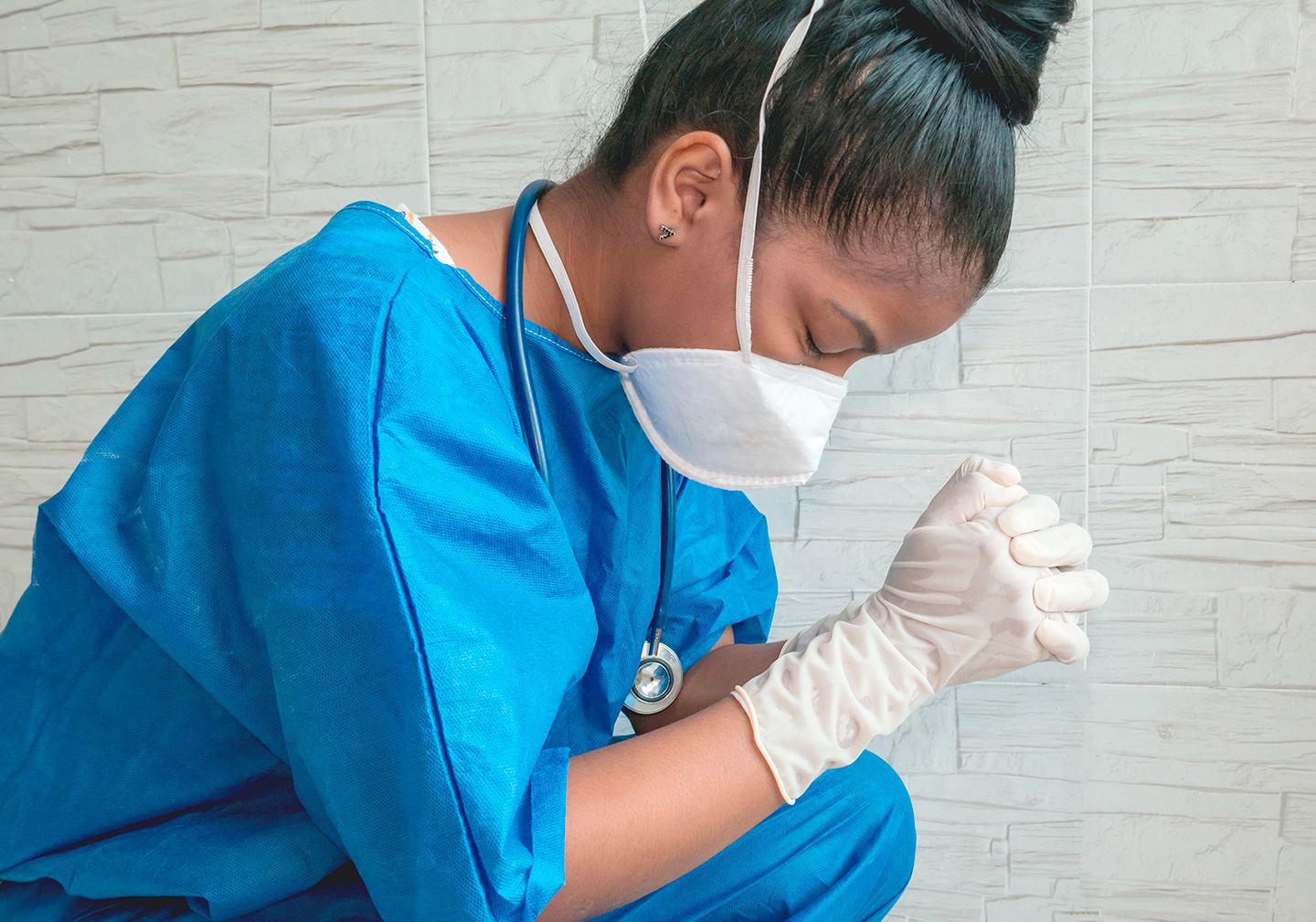As of Monday, February 22, 2021, we’ve lost more than 500,000 of our fellow Americans to COVID-19. It’s a heartbreaking and sobering milestone for us all.
New COVID-19 cases, hospitalizations, and deaths are decreasing. Still, the numbers remain stubbornly high, begging the question, how are you and your staff coping with the pandemic?
Mental health of nursing staff hit the hardest
A French cross-sectional study published in the American Journal of Respiratory and Critical Care Medicine assessed the prevalence of anxiety, depression, and peritraumatic dissociation symptoms in critical care workers during the early months of the pandemic. The study surveyed allied health professionals, medical students, nurses, nursing assistants, residents, and senior physicians across 21 ICUs.
It was found that approximately half of the participants experienced symptoms of anxiety, nearly a third experienced symptoms of depression, and approximately another third experienced symptoms of peritraumatic dissociation. These rates were highest among nursing staff, especially those who worked at non-university affiliated hospitals.
The researchers identified six modifiable determinants of symptoms of mental health disorders among the participants, including
- Fear of being infected
- Inability to care for family
- Inability to rest
- Regret about restrictions in visitation policies
- Struggling with challenging emotions
- Witnessing rushed end-of-life decisions
Ultimately, the study concluded that hospital administrators, ICU directors, and ICU staff must strategize together to overcome these modifiable determinants and other factors that affect the mental wellbeing of critical care workers. Otherwise, in the thick of the pandemic, hospitals may lose more healthcare workers—their most precious resource—to burnout and moral injury.
Healthcare moral injury and COVID-19
Moral injury in healthcare refers to the learning of, witnessing, participating in, failing to prevent, or perpetuating acts that go against a healthcare worker’s profound desire and duty to heal. According to Drs. Wendy Dean and Simon G. Talbot, founders of the concept of moral injury in healthcare, the COVID-19 pandemic is only exacerbating healthcare moral injury.
Supportive interventions for hospital leadership and healthcare workers
Dr. Dean’s and Talbot’s organization, Moral Injury of Healthcare, has developed the following recommendations for hospital leadership and healthcare workers on how to combat moral injury and support mental wellness during the pandemic.
Strategies for Hospital Leadership
Be present
Show your staff that you’re in the trenches with them, aware of their challenges and needs.
Communicate
Deliver a clear, consistent, and transparent message to your staff regarding staffing, space, and supplies as the pandemic continues.
Be proactive
Demonstrate to your staff that you’ve learned from the early days of the pandemic and that you’re prepared to tackle current and future challenges.
Secure your staff
Let your staff know they’re essential by providing them with the workforce they need and informing them right away of any changes in staffing.
Support your staff
Provide your staff with the people, personal protective equipment, training, rest, and psychological support they need to be successful in their jobs during the pandemic.
Trust your staff
Back your staff’s ideas and decisions regarding how to respond effectively to each wave of the pandemic.
Strategies for Healthcare Workers
Take care of yourself
Maintain your self-care, allow yourself to grieve your losses, accept your limitations, and remember your “why” behind your work.
Take care of each other
Check in with your colleagues and share your experiences and needs.
Take a timeout
Clear your head, engage in activities that lift your spirits, and practice gratitude.
As we’ve learned over the past year, healthcare delivery during the pandemic isn’t a sprint—it’s a marathon. Speak with your hospital leadership team about how they can best support you and your colleagues now and over the long haul.

